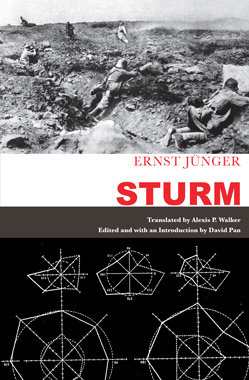A recent piece in the Atlantic by Jonathan Merritt declares the “death of moral relativism.” It echoes observations made by other pundits that there seems to have been a shift in cultural attitudes concerning morality. In the United States, subjectivist, relativist, and “postmodernist” stances are said to have been replaced by robust commitments to social justice, tolerance, and inclusion. David Brooks also, for example, discusses the rise of a veritable “shame culture,” particularly evident on American college campuses and social media, ready to condemn and ostracize those who fail to acknowledge the importance of upholding these new, powerful norms of respect and recognition for the marginalized and oppressed. Indeed, the trend is so omnipresent that there has been significant backlash—critics decry the policing efforts of “social justice warriors” and the scourge of “political correctness.”
|
Those who read Hamlet or Hecuba from the specialist’s standpoint have often found it naïve, and maybe with good reason. Yet I do not want to linger on its worth or faults as a critical essay; I would rather try to read Schmitt’s book in the same way that he read Hamlet, as an eccentric writing, not completely closed, that deals with a subject matter but revolves around another one: Hamlet or Hecuba is something more than a piece of literary criticism. Politicians who warn us against the New Right have been speaking about “Weimar conditions.” Isn’t the comparison with the pre-Hitler era exaggerated? Not as far as the surprise attack dynamic is concerned. One is in fact reminded of the speed with which the National Socialist party gained political ground in the Weimar Republic. First it had 18%, then suddenly 30%, and soon governing without it became practically impossible. Let’s be honest: Today no one knows where the AfD will reach its limit. In Austria, the candidate of the right-wing populist FPÖ got half the votes. Not that long ago, who would have thought this possible? Political analysts have a tendency to consider political events within a relatively short time frame. This tendency has become worse over time as the study of political history has declined, and the historical memory of many analysts is often quite short. Despite this, the case for looking at the politics of a country or civilization in terms of its longue durée is quite compelling, as there can be deep structures underlying politics that are not apparent until they are investigated. Brexit provides a good example. For many people Brexit is viewed in terms of the last twenty-five years and the impact that globalization has had on Britain, as if such things have only taken place in recent times. There are deep structures in the politics of any country that shape its political culture, and hence its response to changing circumstances. As far as the willingness to accept refugees is concerned, Germany is the lonely leader in Europe. No other European country is behaving similarly, nor does the United States. Evidently there is a new special path for Germany. How can this be explained? First of all: Germany is prosperous; we’re doing quite well. If we had southern European unemployment rates or the scarcity of East European countries, we would be less hospitable. Furthermore, influential industrial associations early on argued for the generous reception of refugees and continued to oppose the reestablishment of national border controls, on the basis of economic interests. Human rights activists and capitalists are promoting the same policy, and not for the first time. The left-wing critique of capitalism generally overlooked this affinity, but right-wing capitalism critics understand this very well: for them capitalism is not sufficiently national—it is too universalist. |
||||
|
Privacy Policy · Data Protection Copyright © 2026 Telos Press Publishing · All Rights Reserved |
||||



